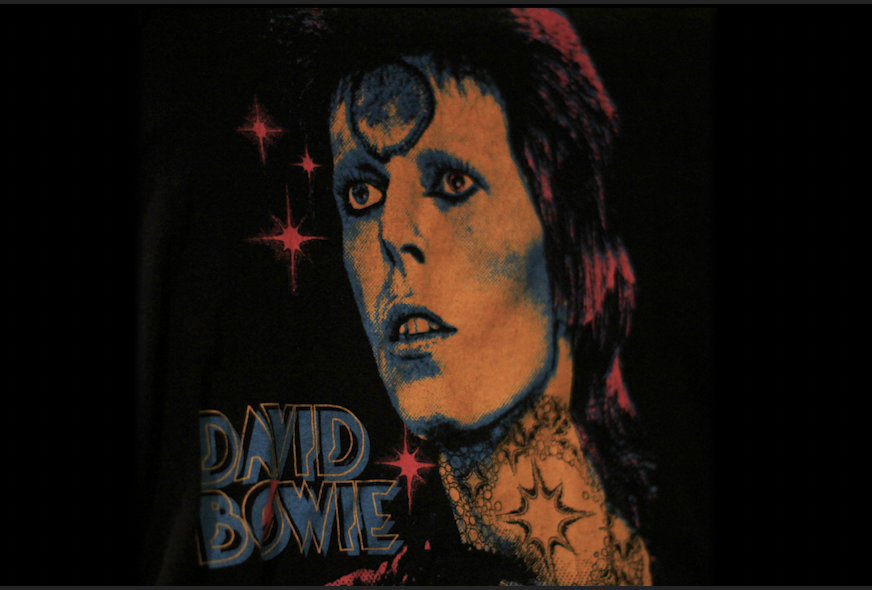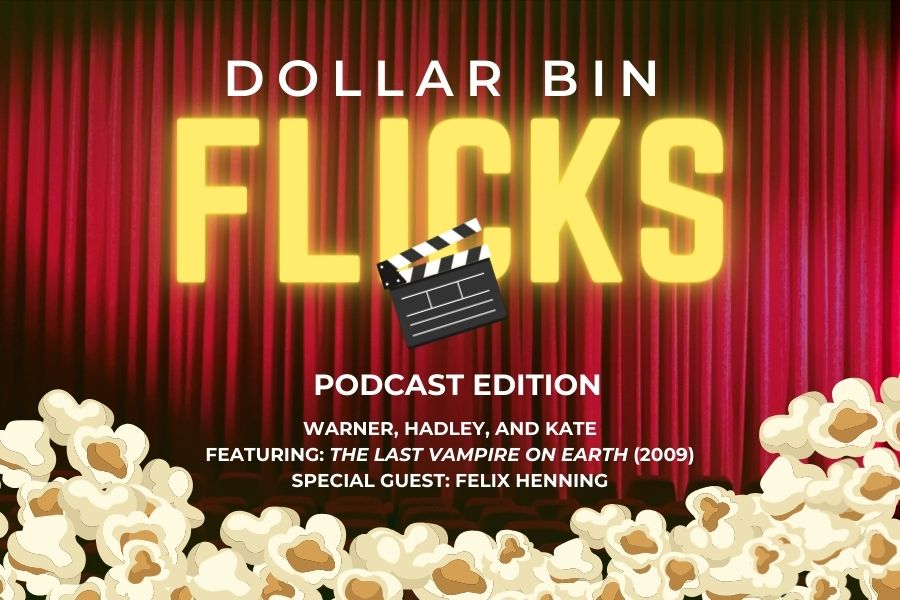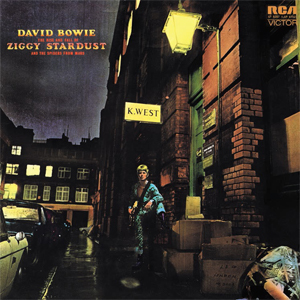
David Bowie is considered one of the greatest modern artists of the 20th century. His output of albums in the 70s is seen as one of the best album runs of all time. The Rise and Fall of Ziggy Stardust and the Spiders from Mars (often shortened to just Ziggy Stardust) is one of my all time favorite albums. It is often seen as one of Bowie’s best album.
With an unmatched tracklist of iconic staples of pop culture, such as the rocking “Moonage Daydream” to the chart topping “Starman,” this record still is not done leaving its cultural impact, even after over fifty years since its release. Many of the largest musicians since this album’s release can cite direct inspiration from this tight 38 minute record.
A large part of the genius behind Ziggy Stardust is the narrative weaved through each track. Ziggy Stardust is a lively character with a tragic story told through these eleven tracks. The amount of detail jammed into these songs is incredible. The overlapping themes of love, depression, and the affects of fame on Bowie’s life come to forefront of the writing weaved through the music, personified through the album’s titular character, Ziggy Stardust.
Through the next ~4000 words, I will dissect and analyze the lyrics behind this album. Here is the extravagant and glorious epic behind the lyrics of The Rise and Fall of Ziggy Stardust and the Spiders from Mars. The graphic below is a table of contents of sorts, if you wish to dissect the setlist in a less linear, more involved fashion.
Click here to view the accessible version of this interactive content[/infographic]
To quickly summarize, Ziggy Stardust is the story of an alien rockstar who observes earth as it descends into disrepair. He decides to come down to earth to save humanity with his music. The album was released in June of 1972 to near unanimous critical acclaim. Up until this point in his career, Bowie was known for experimenting with fashion and gender-bending while performing and during interviews.
These real life elements of Bowie’s personality bleed into Ziggy as a character, who is an androgynous crossdressing rockstar. This not only plays into the metaphor of Ziggy as an alien representing people on the outer circles of society, who have a harder time fitting into societal norms, it plays into Bowie’s extravagant live shows, wherein his costume he had made to play Ziggy in his live performances was loud, bold, and full of personality.
Up to this point his visual aesthetics mostly comprised of wearing contemporary women’s dresses, such as on the cover of The Man Who Sold The World and Hunky Dory, which he swaps for fiery red hair, skin tight body suits with large shoulder pads, and exotic makeup to make him seem otherworldly. This culminates into a well defined visual representation of the character and themes of the record before you even press play. The tours he went on between 1971 and 1973 to promote this record culminated into a grandiose final performance which was recorded and released as Ziggy Stardust and the Spiders from Mars, the Motion Picture.
Five Years
Seen by many to be one of the most influential and stunning album openers of all time, “Five Years” serves to introduce us to the story behind the record. It begins with an unknown narrator observing over a local market square, almost as if like an alien from a UFO. The first thing he notices are several mothers, solemn and tired, seemingly apathetic to their surroundings scattered through his observation. It was just announced the world is ending, and the narrator is witnessing the masses realizing the weight of this news.
The mothers in these opening lines represent the collective despair felt in humanity, as a child’s mother is often seen as an emotional rock for her children, to protect them from the hurt that the world may bring them. To see them lose that composure and express that fear and anguish, raises concern for the narrator. The end of the second verse sees him reminiscing on his own mother, longing for the security she gave him.
The rest of the two verses are dedicated to describing the panic experienced in the market. The news just reported Earth has five years left before the end of the world: “A girl my age went off her head. Hit some tiny children…A soldier with a broken arm, Fixed his stare to the wheels of a Cadillac. A cop knelt and kissed the feet of a priest.” As people are throwing things, destroying their surroundings, attacking children, overall showing incredibly visual examples of collective mania, he becomes overwhelmed watching everything go down. The song ends with a dramatic explosion of strings and percussion as he sings out the name of the song, as his background vocals become more deranged as he’s screaming and losing his composure with everyone else he looks down upon.

Soul Love
As the title of the song suggests, this track is about love. From the mellow drum groove, to the saxophone solo that sounds as though it was recorded right in the streets of Paris. It serves as a cooldown from the intense build from the last song. It pulls the listener’s attention with a slower, more soothing sound. Throughout the song, the narrator observes all the different types of love humans feel for each other.
It opens on a mother grieving her son who died as a martyr, defending a cause he believed in. The chorus details the nature of love, how “Love is careless in its choosing” and “Sweeping over cross and baby. Love descends on those defenseless.” This song does not tell a direct part of the story, instead looks to set up the narrator’s motivations for his actions later in the story, as well as the album’s running theme of love and connection. He sees the love humans share with each other, and decides he is going to save humanity through his music.
Moonage Daydream
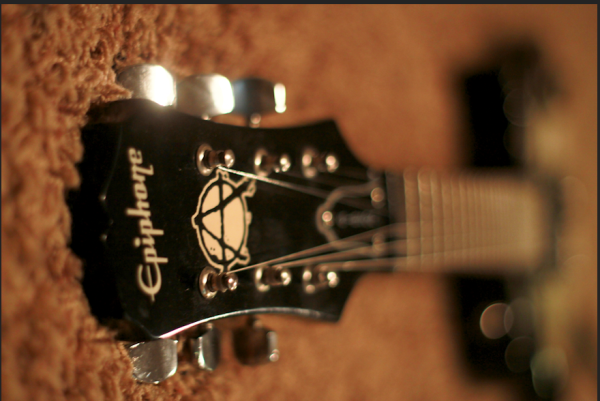
Up until this point I have been referring to Bowie as ‘The Narrator,’ a simple observer of humanity rather than an actual participant in this story. It’s at this point in the album he turns from a faceless narrator, into a fleshed out character. This is the introduction of Ziggy Stardust. Ziggy explodes into the story through a loud and abrasive guitar chord. “Soul Love” had a smooth jazzy feel to it’s instrumentation, “Moonage Daydream” is pure rock and roll. That alone can give you a good representation of his character, but the rest of the song reinforces that persona.
He introduces himself as an alligator, an aggressive and hostile animal known for its ferocious tendencies. He busts down the door, and tells the listener to shut their mouth and pay attention. He immediately grabs the attention, and in the chorus he revels in the attention: “Keep your electric eye on me.” The electric eye he refers to manifests into what appears to be a golden eye Bowie would paint onto himself whenever dressing up as Ziggy. He uses this allure to seduce women, though it seems he has trouble finding real love as later in the second verse he pleads for her to be genuine with him in the line “Don’t fake it, baby, lay the real thing on me.”
Throughout the song Ziggy makes several references to aliens and science fiction. He talks about ray guns and space, among other references. He refers to himself as a space invader, which perpetuates the thought that Ziggy is an alien, who came to earth to save humanity with his rock and roll music. The only thing he has done up to this point is observe humanity, disconnected as if from a spaceship. This matched with the themes of love and connection is a metaphor for feeling detached from the people and relationships around you. The use of sci-fi imagery gives Ziggy a sense of escapism and wonder, serving as a tortured artist archetype, to further put a wedge between himself and others, as he struggles to find real love and replaces it with a stone cold, cool persona.
Starman
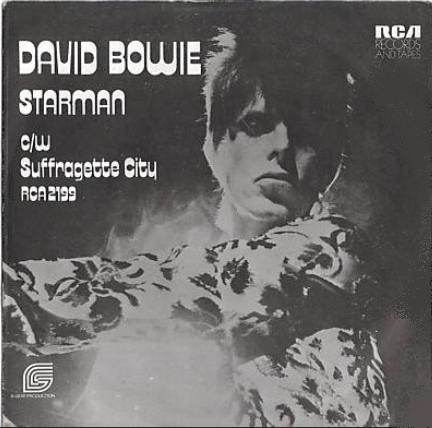
Released as the first single to promote this record, “Starman” surpasses being my personal favorite song on this album, and in fact holds its place in my heart as my favorite David Bowie song of all time. For the first time so far, perspective shifts away from Ziggy to instead focus on an older woman, listening to her radio late at night. She listens to Ziggy’s music, as the station cuts in and out due to how far she is from the signal. This represents the reach Ziggy’s music has, and given how she has trouble staying on his station, shows perhaps his disconnect with older generations.
We hear a radio host describe him as “Some cat laying down some rock and roll” and saying he has a “lot of soul” showing a clear disconnect as these phrases are from much older generations that Ziggy’s music appeals to. Despite the disconnect he has seen so often depicted in the previous songs, he seems to have found a connection with young adults and teenagers. His music is everywhere because of his influence on them.
The chorus depicts a collection of youth who all see him as a savior, who will protect them from the end of the world. They see his isolation as a way to protect them, rather than blowing the minds of the older generation. For the first time, he is seen and accepted for who he is. Many see the idea of an alien coming to earth as something to be threatened by, a hostile takeover, but the last lines of the chorus suggest that humanity is not scared of Ziggy and are just happy to not be alone in this world and instead to dance.
The closing moments of the song are a dreamlike sing-songy haze of la-la-las representing the unison and hope felt for the first time in this grim depiction of an apocalypse. This interpretation is a very strong parallel to real life, and to Bowie as a performer. His music was predominantly written off by older generations for its abrasive sound and suggestive and mature subject matter, and embraced by the youth, who saw him as someone who gave them a voice and spoke to them in ways they haven’t experienced before, rather than their predecessors writing them off as dumb or immature. It serves as a perfect encapsulation of the story of the album into one song, as well as the idea of giving a voice to the voiceless, and being seen for who you are after being disregarded by others. It serves as a powerful message not only to people of the time, but still rings true to this very day as Bowie’s music reaches new generations.
It Ain’t Easy
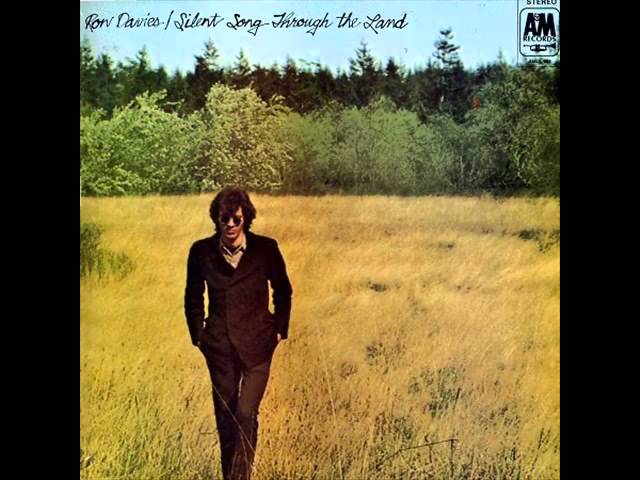
“It Ain’t Easy” is a notable shift in tone in the middle of the tracklist. This is mostly due to the fact that this is not a Bowie song to
begin with. This is in fact a cover of a Ron Davies’ song. This isn’t a completely random choice for the album, as it is widely speculated that Davies is a primary inspiration behind Ziggy as a character. It stands as the most glam rock inspired track on the album, and though it is a cover Bowie still puts his own twist on many of the lyrics to keep it consistent within the same themes as the rest of the album.
Even though the lyrics don’t hold an exact relationship with the rest of the tracklist, many have still given it a perspective that still fits within the narrative. The most common interpretation is this is Ziggy taking another close look at the world. He has been embraced by society, so now when he takes a look at humanity his perspective shifts from the beginning of the album.
He starts by climbing a mountain and looking out onto the sea, which represents the potential he sees in humanity, his calm surroundings and serene environment. As he trails back into town all he can see is the self destructive nature of humanity, and the strange turmoil that doesn’t make sense in his mind. The chorus repeats the line “It ain’t easy to get to heaven when you’re going down” wherein heaven is seen as an attainable goal, which in Ziggy’s mind is peace and harmony among the human race, and that goal seeming less and less attainable the more he learns about humanity, and the more he sees in his time on earth.
Lady Stardust
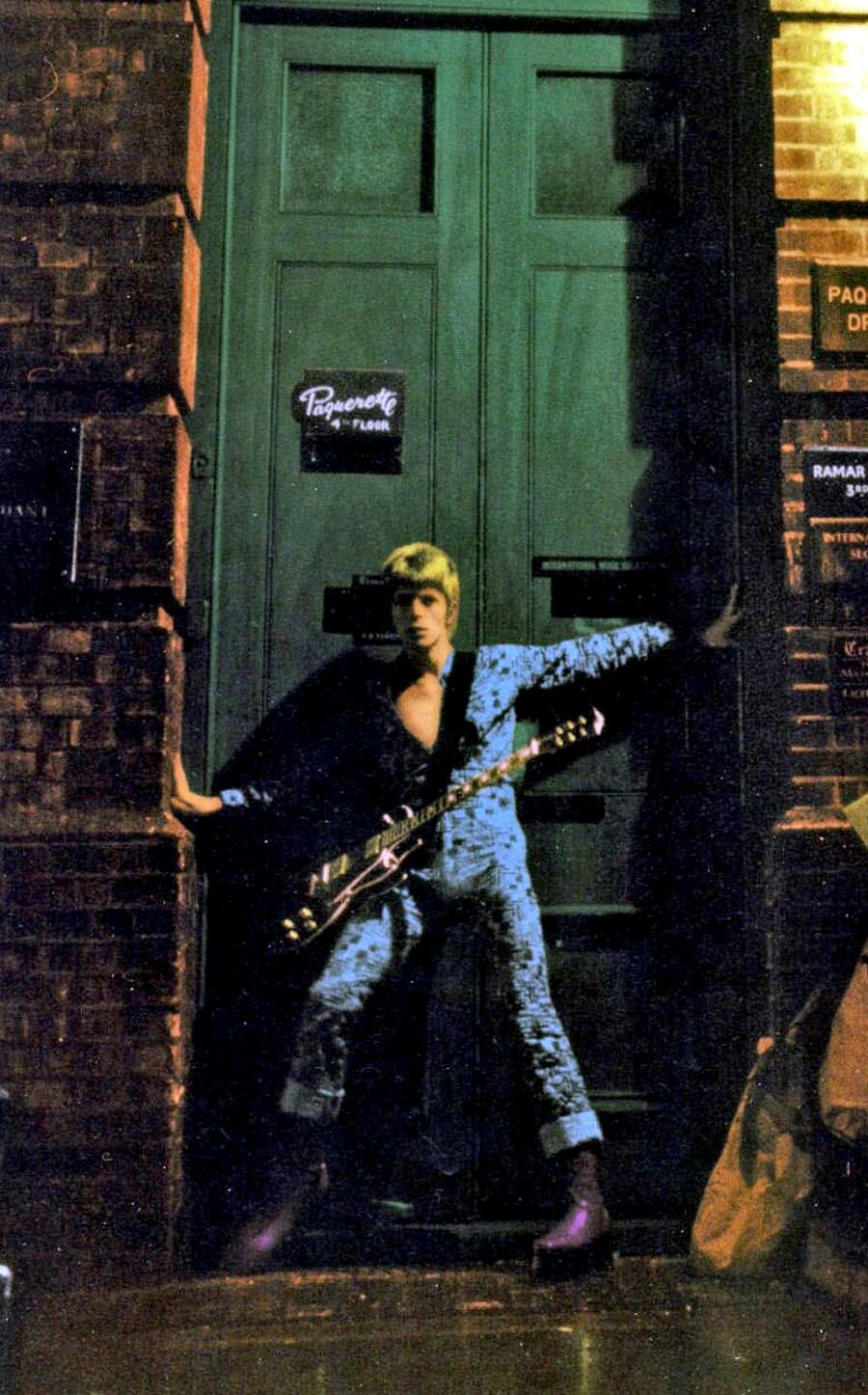
A soulful piano ballad, “Lady Stardust” marks a stark shift in tone from the glam rock extravagance that came before it. As Ziggy begins to notice the imperfections in humanity, he begins to notice the hatred he receives from older generations. Up to this point in his career he was known for dressing up in feminine clothing, and doing elaborate makeup for his concerts.
The tours surrounding this album Bowie dressed up in an incredibly elaborate, now iconic look to play the character of Ziggy Stardust. The first verse described the way people made fun of the way he dressed, again, going back to the idea he’s alien and different. “People stared at the makeup on his face Laughed at his long black hair, his animal grace The boy in the bright blue jeans jumped up on the stage ‘Lady Stardust’ sang his songs of darkness and disgrace.”
The song paints an androgynous character, who refers to himself as a lady while at the same time referring to himself with male pronouns. In 1972 when this album was released, homosexuality was seen by the public as a sickness, a disease that needed to be cured, so for Bowie to perform with such a flamboyant stage presence upholds the same themes of rejection and isolation this album is so familiar with. Despite all of this though, Ziggy still finds confidence when he gets on stage and begins singing.
The chorus refrain “He was alright” is sung with a sense of reassurance in his voice, a sense of comfort and confidence in the way he defies social standards and is able to block out the disgust he faced. The song serves as a tribute to T. Rex singer Marc Bolan, whom Bowie was good friends with. Not only as a sonic influence, Bolan was known for his glamorous and striking looks which served as a direct influence on Bowie.
Star
The entire story holds a real life parallel to stardom and the effect of stardom not only on Bowie specifically, but all musicians as a whole. This is the most bluntly titled of the tracklist. This is the point where Ziggy’s success begins to get into his own head as his ego overtakes him. The opening verse sees him try to highlight issues in the world through his music. He is aware of all the musicians that came before him with the same mission that in his eyes, have failed in a way he wishes to learn from and overcome.
The thought of his ability to change the world for the better excited him, and his self aggrandizing becomes prominent through the lyrics. He began writing and performing music to benefit the world, but now he’s stuck in his own head, writing music that will make him more famous, more money, more women, rather than writing music he’s passionate about. This is Ziggy at his most self centered. He is the star of the show. He dreams of further success, saying he wants to wake up and fall asleep as a rockstar. He’s lured into a self-destructive lifestyle by the allures of acclaim and grandeur that inevitably become his downfall later in the story.
Hang Onto Yourself

This uptempo was first released as a single disconnected from the album release cycle under the name “Arnold Corns.” After it failed to sell to the standard it was expected to, Bowie realized it worked within the context of Ziggys story, so he reworked it slightly and renamed it to “Hang Onto Yourself.” This song is all about the fast paced rockstar lifestyle Ziggy has found himself knee deep inside. He has groupies, he’s doing drugs, he’s having meaningless sex with his groupies, and slowly hurting himself with these destructive habits. The fast paced guitar chugging makes your heart race, emulating the feeling of a cocaine bender wherein Ziggy indulges in his lifestyle.
Bowie in real life at this time famously had a crippling addiction to cocaine he developed after he began touring and profiting from his music. His addiction was so bad for a while, he lived off of a diet consisting exclusively and notoriously of milk and red bell peppers. This drug abuse culminated in a form of mania, and it was obvious to everyone around him he needed to get clean, or he was going to die. This song is a great window into the psyche of David Bowie as a performer and as a human, while simultaneously progressing the story of Ziggy forward. In the second verse we are introduced to his band, the Spiders from Mars, as they act as a poor influence, indulging in the same lifestyle as their frontman. Glen Matlock of the Sex Pistols cites this song as a direct inspiration to the fast paced wave of punk the Sex Pistols paved the way for.
Ziggy Stardust
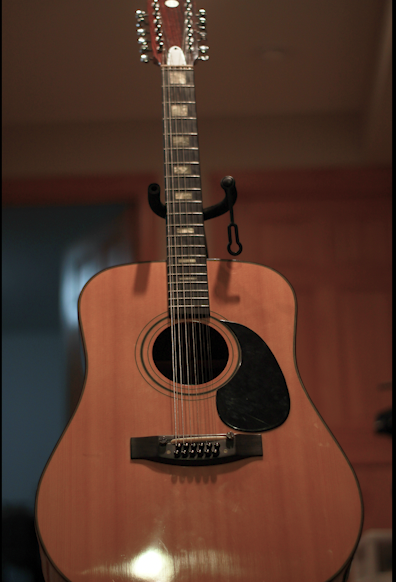
This is the second song written from a perspective away from Ziggy. Despite sharing a name with the titular character, this song is written from the perspective of the Spiders From Mars, Ziggy’s backing band. The first line tells you immediately it isn’t Ziggy, as he’s referred to in the 3rd person right away. The first two verses have the band talk about Ziggy, describing his extravagant looks, his singing voice, and the fact he plays a left handed guitar. They seemingly dish out a few digs at Ziggy, calling his eyes screwed up, and making fun of his hair. In real life, Bowie got into a fight in grade school over a girl, and a punch to the head permanently dilated his left eye.
Despite evidently being around him so frequently, as they share a stage together, they all describe him with very obvious or vague descriptors. It’s as if they’re being interviewed and they’re tired of talking about their frontman. This frustration is amplified as they express their thoughts to Ziggy in the chorus, asking him where he thinks the Spiders are going to be in the future. They have a sneaking suspicion that Ziggy’s ego will overtake him, and wanting more of the stage for himself, will fire the boys for future tours.
The third verse goes into more detail on his ego spiraling, complimenting his own physical features, and making fun of both his critics and his own fans. They somewhat sarcastically say he can play guitar, insinuating that is the only reason his music is as popular as it is. The second chorus resolves the fears and questions the band had for Ziggy. The lyrics “When the kids had killed the manI had to break up the band” insinuate Ziggy’s fans had made his superiority complex worse, metaphorically killing his former self. He is now simply an egotistical shell of his former self. The band watches this happen, and collectively decide playing music with their former friend is not worth being pushed into the background to Ziggys ego, and decide to leave and break up the band, further isolating Ziggy and amplifying his insecurities and depression he feels from standing out as alien from his peers, as this is the first time Ziggy’s mental health issues begin to take center stage in a direct way.
Suffragette City
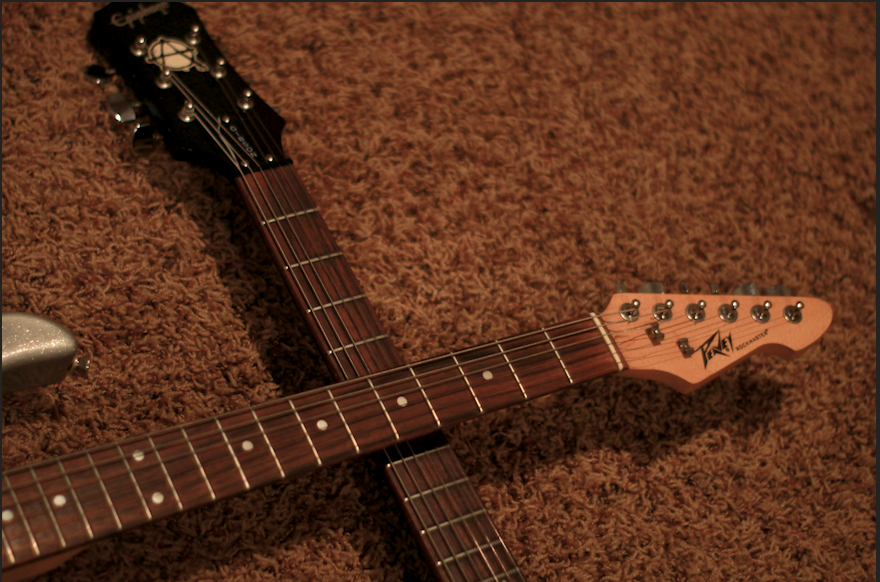
After the Spiders leave Ziggy once and for all, he feels more alone than ever. He tries to fill the hole with meaningless sex, which soon becomes exhausting. The woman he sleeps with demands more of his attention than he can physically give her along with his art and work. In the verses he is on the phone with a friend of his named Henry, whom he complains about his life, while simultaneously pushing Henry away, claiming he doesn’t have the time or motivation to make their one sided relationship mutual, as it is clear Henry is just another coping mechanism for Ziggy.
He justifies his isolation by claiming he’s a harmful person to be around. He says you can’t lean on him, because he’s in Suffragette City, and you can’t afford a ticket back home. A Suffragette was a woman seeking the right to vote through protest, and I believe Ziggy parallels this to his girlfriend being very demanding, and requiring a lot of his time and energy. He seems to be lashing out at his girlfriend, seemingly as a response to the mounting stress in his life.
The song has very similar sonically to “Hang Onto Yourself,” which details his harmful coping mechanisms and finding solace in drug abuse and women. The key difference is in “Hang Onto Yourself,” he seems unaware of the fact he has a problem. This time around, he knowingly uses the same coping mechanisms, which now feeds into a cycle of depression, in hopes he can find a way out of his self-inflicted misery.
Rock ‘n’ Roll Suicide
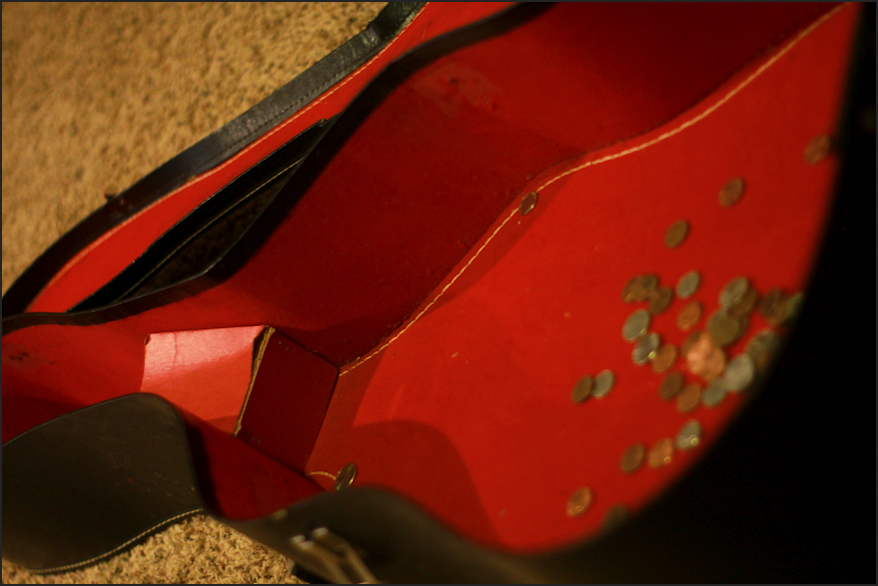
As a stark contrast to the beginning of the album, rather than having the explosion of energy and emotion the opening had, the closer “Rock ‘n’ Roll Suicide” is noticeably stripped down, opting to begin with a simple guitar and vocals. The album builds to this tragically anti-climactic finish, where rather than going out with a blaze of glory, Ziggy’s story ends in a melancholic self reflection of all that has happened in his life.
By this point in the story, the legend of Ziggy Stardust is all but dead. This song deals primarily with the passage of time, as the opening lines see time personified and manifested as a dear friend, offering Ziggy a cigarette to calm him down, and reassure him that as his time on earth comes to a close. Time reassures that he can find comfort in his remaining minutes. This is one of the few moments on the record where Ziggy isn’t observing anyone, he’s not performing to adoring fans, all that is left is himself, his thoughts, and time. He reminisces on his time playing music, though he slowly is overcome by thoughts of self doubt and criticism. He’s now too old to recapture that fire and energy he once had, but isn’t old enough to be ready to die, so he clings to time to comfort him.
He sits as a ghost of his former self, as depression overcomes him and he thinks of jumping in front of a car to end it all. As these negative thoughts overtake him, the instrumentation abruptly cuts for a brief moment, only to explode back out with the line “you’re not alone.” It stands as the last plea to save the Rock ‘n’ Rollers life and pull him from succumbing to his own tortured thoughts. Whether it’s an actual person who cares about Ziggy, perhaps the only person to truly care about Ziggy, or if it’s simply his humanity trying to save him, they passionately call out to him, and try to save him from himself as the instruments crescendo, accompanied with strings and a magnificent horn section.
The song ends with them chanting “give me your hands” and it remains ambiguous whether or not it ends with Ziggy turning around or continuing his descent. This song is such a powerful ending not only to Ziggy’s story, but also as it pertains to the real life struggles of watching someone you love torture themselves in their depression, and watch them slip away as it overcomes them. This song not only serves as the end of Ziggy Stardust as a character, it serves as the end of Ziggy Stardust as a persona, as this is the last song Bowie performed as the Alien Rock and Roller, which can be heard on his 1973 live album ‘Ziggy Stardust and the Spiders from Mars: the Motion Picture Soundtrack.’ This live album serves as the last performance of Ziggy Stardust, and his Spiders from Mars.
The release of this album saw unmatched success Bowie had never seen up to that point in his career. Though he’s had better selling records since, it’s impossible to overstate the impact this record has had on people all over the world. After the release of this album, Bowie slipped into a very harmful lifestyle of abusing drugs and overworking himself.
The tours surrounding this album are known as some of the most extravagant and elaborate shows from that era. His poor diet as a result of his excessive cocaine use gave him the nickname the Thin White Duke, as he often appeared malnourished and delirious. The themes he discussed in this album serve as a cautionary tale, as he struggled with similar issues, which he manifested into a fictional story parallel to his own.
Still, after over 50 years this album is still considered one of the greatest and most influential of all time. It’s inspired millions, not only just musicians who can accredit this as an influence on their sound, but for anybody who can feel as though they can connect to Bowie’s lyrics or eccentric personality. I highly recommend anyone give it a listen to not only this record, but the live album as well. Both will be linked below.
If you would like to know more about this album and David Bowie as a performer, I highly recommend the film Moonage Daydream. It’s a surreal film mixing documentary style interviews and concert footage taken around the time this album was released. It’s touched millions of hearts and proves that David Bowie has earned his spot at the top of music history, and that the fiery spirit of Ziggy Stardust will never die out.



